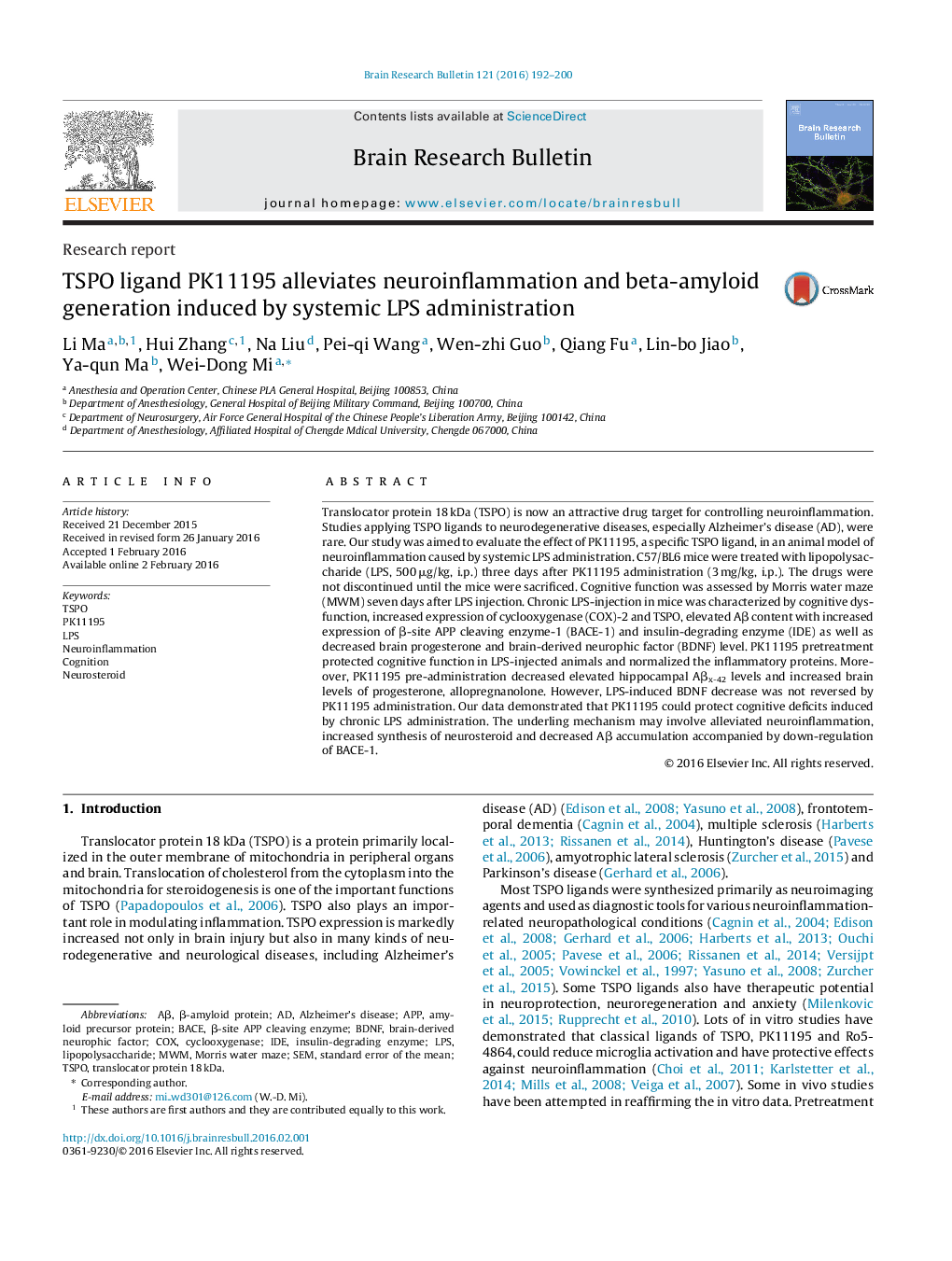| Article ID | Journal | Published Year | Pages | File Type |
|---|---|---|---|---|
| 4318654 | Brain Research Bulletin | 2016 | 9 Pages |
•PK11195 prevented the cognitive dysfunction induced by systemic injection of LPS.•PK11195 alleviated neuroinflammation, increased synthesis of neurosteroid.•PK11195 decreased Aβ accumulation accompanied by down-regulation of BACE-1.•BDNF expression enhancement seemed not to be involved in PK11195 neuroprotection.
Translocator protein 18 kDa (TSPO) is now an attractive drug target for controlling neuroinflammation. Studies applying TSPO ligands to neurodegenerative diseases, especially Alzheimer’s disease (AD), were rare. Our study was aimed to evaluate the effect of PK11195, a specific TSPO ligand, in an animal model of neuroinflammation caused by systemic LPS administration. C57/BL6 mice were treated with lipopolysaccharide (LPS, 500 μg/kg, i.p.) three days after PK11195 administration (3 mg/kg, i.p.). The drugs were not discontinued until the mice were sacrificed. Cognitive function was assessed by Morris water maze (MWM) seven days after LPS injection. Chronic LPS-injection in mice was characterized by cognitive dysfunction, increased expression of cyclooxygenase (COX)-2 and TSPO, elevated Aβ content with increased expression of β-site APP cleaving enzyme-1 (BACE-1) and insulin-degrading enzyme (IDE) as well as decreased brain progesterone and brain-derived neurophic factor (BDNF) level. PK11195 pretreatment protected cognitive function in LPS-injected animals and normalized the inflammatory proteins. Moreover, PK11195 pre-administration decreased elevated hippocampal Aβx-42 levels and increased brain levels of progesterone, allopregnanolone. However, LPS-induced BDNF decrease was not reversed by PK11195 administration. Our data demonstrated that PK11195 could protect cognitive deficits induced by chronic LPS administration. The underling mechanism may involve alleviated neuroinflammation, increased synthesis of neurosteroid and decreased Aβ accumulation accompanied by down-regulation of BACE-1.
